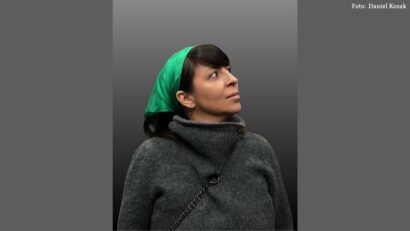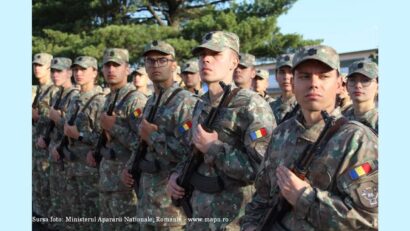The Superwriting Awards
The Romanians’ trust in the press has been constantly diminishing, while social networks have become the main sources of information for many. Against this background, the Superwriting Awards, the only annual event awarding the best Romanian journalistic productions, is an opportunity of acknowledging the meritorious people behind various publications

Iulia Hau, 11.06.2025, 14:00
People’s trust in the press in Romania has been going down for quite some time now. A report published by Reuters last year, which has been considered the latest and most comprehensive survey on journalism at world level, shows the Romanians’ trust in the media dropped from 39% in 2017 to 27% in 2024. According to the same report, Radio Romania is the second most trusted media trademark among all those included in the survey.
According to a Eurobarometer published in 2023, the Romanians are resorting to social networks to get information in larger numbers than the European average, and cases in which journalists are being intimidated aren’t isolated situations.
Against this background, since 2011, the best journalistic materials, editorial offices, civic projects have been awarded during the aforementioned award gala, which has also been offering scholarships and staging workshop and debates. During its 14th edition last month, a series of journalistic materials exposing abuses in universities, violence against women in politics, real estate frauds, the situation of Romania’s mental health system, stories of the Asian immigrants in Romania, the way in which artificial intelligence has been used against women, projects of documentary photography depicting natural disasters caused by global warming, online political education projects, a non-fiction book and others were being acknowledged.
Alexandra Candor, executive director of the Friends for Friends Foundation (the NGO, which is staging the Superwriting Awards) speaks about the evolution of the Romanian journalism in the past decade:
Alexandra Candor:” It seems to me it has developed a lot. I remember that at the first edition of our award gala, there were just a couple of publications, five-six, if at all. A couple of independent projects were coming into being at that time, or had been one-two years old back then. The event was also smaller as journalists were also in lower numbers back then. It seems to me that this press section, involving press projects, which are independent or not affiliated to big media trusts, has developed significantly. The number of journalists involved in suchlike projects has significantly increased. I have seen lots and lots of young journalists reaping awards in our award gala. And I am glad of seeing this, I am glad that a young generation of journalists has emerged. Now I know that what we see at the Superwriting Awards gala is not representative for the entire market, which is quite big, you know. And I also know that by and large, it’s not easy to attract young talents.”
This year’s edition had as its main theme, mental health. Alexandra Candor told us the reason behind this choice.
Alexandra Candor:” It all started from a series of talks we had in the past two years with various journalists related to the project and we understood that it was a need for this kind of talks. We need to talk about mental health. We need to start discussions like these in the press in our country. I don’t know even now whether we managed to kick off such a big discussion, but I hope we did so. However, what I know is that many people felt they were facing mental health issues, but either they found it difficult to admit it, or they didn’t know what to do in situations like these. I believe this issue continues to exist and, like I said on the stage, what we did with this edition was only the start; namely to open a space of discussions on this issue and find solutions together to do things better.”
One of the most pressing issues the independent press is currently facing is the fact that few editorial offices manage to become financially sustainable. Here is again Alexandra Candor
Alexandra Candor:” I know this is a problem at global level. I mean, funding the press is generally a problem and sustainable business models in this area are quite an issue – mainly in this context when algorithms and social media have influenced very much the way in which journalistic materials have been promoted in the past years and the way they are being promoted now, not very much, you know, as the social media is no longer interested in promoting high quality content.”
We asked Alexandra Candor, what would be a healthy ratio between funding coming from a private environment and civil society.
Alexandra Candor:” Before starting to work for Friends for Friends in 2021, I worked in the business environment not for civil society, so, I guess it’s easier for me to get both pictures, you know…I believe it can be a serious relationship between the business environment and journalism. I believe this relationship has deteriorated significantly in the past years due to the way in which advertising has been done and sold in our country, when only figures counted and nothing else. The business understood that if it paid the press to write nice articles about them, everything was going to be OK. And I believe the relationship started to suffer from that time on. But I also believe that the business knows and can understand that you have to support the press not only to have an influence on what they write about you, but because this is simply an exercise aimed at keeping a functional democracy and a free market you are operating in. I believe the two sides are in need of a dialogue, and it’s a shame this kind of dialogue has been absent for quite some time now.”
In 2025 the Grand Prize in the aforementioned Superwriting Awards gala went to a publication from the Republic of Moldova, entitled the Guard Newspaper for an undercover investigation, which proved the Russian influence over the 2024 presidential election and the referendum over European integration.
(bill)






























